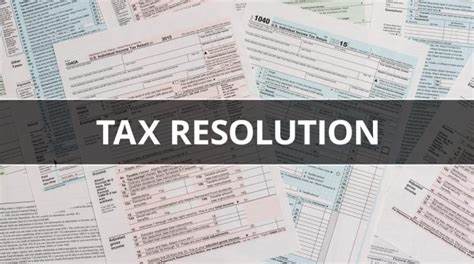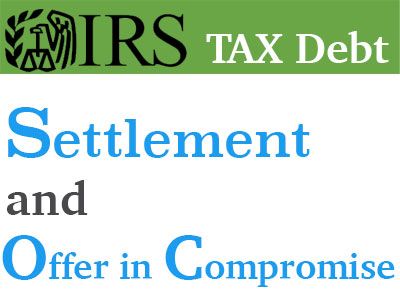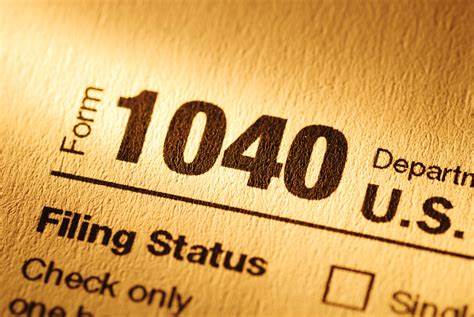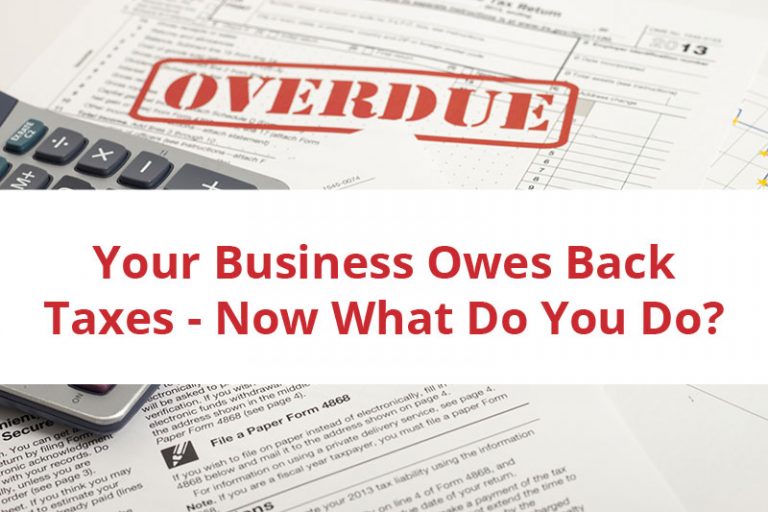by Paulette Marshall | Dec 26, 2023 | Tax Preparation, Tax Resolution
Dealing with the IRS can be a daunting and frustrating experience, especially when attempting to resolve substantial tax debt independently.
Many taxpayers find themselves entangled in a web of bureaucracy, with confusing and complex procedures.
In this article, we’ll shed light on the major areas of frustration that individuals face when trying to contact the IRS on their own and explain why seeking professional tax relief assistance is often the best path to resolution.
1. Endless Wait Times & Automated Phone Systems
One of the most common frustrations taxpayers encounter when reaching out to the IRS is enduring long wait times on hold. The sheer volume of callers seeking assistance often leads to extended wait periods, leaving individuals frustrated and wasting valuable time.
On top of dealing with the wait times, navigating the IRS’s automated phone system can feel like an endless loop of menu options, recordings, and prompts.
Many taxpayers struggle to reach a live representative or get answers to their specific questions. Professional tax relief firms like ours have dedicated numbers for professionals, as well as staff and processes for getting in touch with the IRS or state on your behalf.
2. Lack of Clarity and Inconsistent Information
IRS communications can be laden with complex jargon and technical terms that are challenging for the average taxpayer to decipher. Understanding notices, forms, and tax codes often requires expert knowledge.
Taxpayers also may receive conflicting information or advice from different IRS representatives. This inconsistency can lead to confusion and hinder progress in resolving tax issues, and often, it can make your problems worse.
3. Lengthy Response Times
When taxpayers correspond with the IRS through mail or fax, response times can be excruciatingly slow. Waiting weeks or months for a reply can delay the resolution process and amplify frustration.
4. Complex Documentation & Form Requirements
Submitting the required documentation to the IRS can be an intricate and demanding task. Missing or incorrect documents can lead to further delays and complications.
Not only is the documentation difficult, but IRS forms are notorious for their complexity. Filling out forms accurately can be challenging, and errors can lead to rejected submissions and additional hassles.
5. Intimidating IRS Notices & Negotiating
Receiving a notice from the IRS can be intimidating, especially when it includes legal language and threats of penalties or liens. Many taxpayers feel overwhelmed and unsure how to respond effectively.
Once they eventually get in touch with an IRS representative, the negotiation process can be a stressful endeavor. Taxpayers may feel unequipped to handle the negotiation process, leading to unfavorable outcomes.
Given the myriad challenges and frustrations associated with navigating the IRS independently, many individuals turn to tax resolution professionals for assistance.
Tax relief firms like ours have knowledge, experience, and resources to:
- Expedite the resolution process by communicating directly with the IRS on the taxpayer’s behalf.
- Interpret complex tax codes, notices, and forms.
- Negotiate favorable terms for tax debt repayment.
- Provide clarity and guidance throughout the process.
- Alleviate the stress and anxiety associated with IRS interactions.
The frustrations of dealing with the IRS on your own are undeniable. From interminable wait times to intricate documentation requirements, taxpayers often find themselves overwhelmed and disheartened.
Seeking professional help from a reputable tax resolution company like ActionTaxRelief.com can be the most effective way to navigate the complex world of tax debt resolution, offering individuals the support and expertise needed to achieve a favorable outcome while alleviating the burden of IRS-related stress.
Contact our office today at 937-268-2737 for a free, no-obligation consultation and let us deal with the IRS for you.

by Renee Lawson | Dec 19, 2023 | Tax Preparation, Tax Resolution
Tax issues can be complex and overwhelming, and when you find yourself facing IRS problems or unmanageable tax debt, it may be time to seek assistance from a tax resolution professional.
Tax resolution professionals can help individuals and businesses navigate the intricacies of the tax system and find viable solutions to their tax challenges.
In this article, we will explore the key indicators that signal when it’s time to reach out to a tax resolution professional for assistance.
Note: If any of the reasons below apply to you, contact our office today at 937-268-2737 for a free, no-obligation consultation to review your options www.actiontaxrelief.com
1. Overwhelming Tax Debt
One of the most significant indicators that you should contact a tax resolution professional is when you are burdened by substantial tax debt. Whether you owe back taxes, penalties, or interest charges, a tax resolution expert can assess your financial situation and help you develop a strategy to resolve your tax debt.
2. IRS Audits and Notices
Receiving audit requests or notices from the IRS can be stressful and intimidating. If you are facing an IRS audit or have received a notice of unpaid taxes or discrepancies in your tax filings, it’s advisable to consult with a tax resolution professional.
A tax resolution professional can guide you through the audit process, represent your interests, and ensure that you provide the necessary documentation to address IRS inquiries.
3. Wage Garnishments or Bank Levies
If the IRS has initiated wage garnishments or bank levies to collect unpaid taxes, it’s a clear sign that you need professional, and immediate, assistance.
Tax resolution experts can negotiate with the IRS to release these levies and develop a plan to resolve your tax issues.
4. Threats of Property Seizure
The IRS has the authority to seize your property, including homes, vehicles, and other assets, to satisfy tax debts. If you have received threats of property seizure, it’s imperative to act quickly and seek the expertise of a tax resolution professional to protect your assets and negotiate a favorable resolution.
5. Inability to Negotiate with the IRS
Negotiating with the IRS can be a daunting task, especially if you lack the experience and knowledge to do so effectively. Tax resolution professionals specialize in negotiating with the IRS on behalf of their clients, ensuring that your interests are represented and that you receive fair treatment.
When you encounter any of the above issues, it’s a clear signal that it’s time to reach out to a tax resolution professional. Firms like ours are equipped to assess your tax situation, develop tailored solutions, negotiate with tax authorities, and provide peace of mind during challenging times.
Don’t hesitate to seek professional assistance when facing tax problems, as timely action can lead to more favorable outcomes and financial relief.
Contact our office today at 937-268-2737 for a free, no-obligation consultation to review your options www.actiontaxrelief.com

by Paulette Marshall | Dec 6, 2023 | Tax Preparation, Tax Resolution
Dealing with the IRS can be a daunting and frustrating experience, especially when attempting to resolve substantial tax debt independently.
Many taxpayers find themselves entangled in a web of bureaucracy, with confusing and complex procedures.
In this article, we’ll shed light on the major areas of frustration that individuals face when trying to contact the IRS on their own and explain why seeking professional tax relief assistance is often the best path to resolution.
1. Endless Wait Times & Automated Phone Systems
One of the most common frustrations taxpayers encounter when reaching out to the IRS is enduring long wait times on hold. The sheer volume of callers seeking assistance often leads to extended wait periods, leaving individuals frustrated and wasting valuable time.
On top of dealing with the wait times, navigating the IRS’s automated phone system can feel like an endless loop of menu options, recordings, and prompts.
Many taxpayers struggle to reach a live representative or get answers to their specific questions. Professional tax relief firms like ours have dedicated numbers for professionals, as well as staff and processes for getting in touch with the IRS or state on your behalf.
2. Lack of Clarity and Inconsistent Information
IRS communications can be laden with complex jargon and technical terms that are challenging for the average taxpayer to decipher. Understanding notices, forms, and tax codes often requires expert knowledge.
Taxpayers also may receive conflicting information or advice from different IRS representatives. This inconsistency can lead to confusion and hinder progress in resolving tax issues, and often, it can make your problems worse.
3. Lengthy Response Times
When taxpayers correspond with the IRS through mail or fax, response times can be excruciatingly slow. Waiting weeks or months for a reply can delay the resolution process and amplify frustration.
4. Complex Documentation & Form Requirements
Submitting the required documentation to the IRS can be an intricate and demanding task. Missing or incorrect documents can lead to further delays and complications.
Not only is the documentation difficult, but IRS forms are notorious for their complexity. Filling out forms accurately can be challenging, and errors can lead to rejected submissions and additional hassles.
5. Intimidating IRS Notices & Negotiating
Receiving a notice from the IRS can be intimidating, especially when it includes legal language and threats of penalties or liens. Many taxpayers feel overwhelmed and unsure how to respond effectively.
Once they eventually get in touch with an IRS representative, the negotiation process can be a stressful endeavor. Taxpayers may feel unequipped to handle the negotiation process, leading to unfavorable outcomes.
Given the myriad challenges and frustrations associated with navigating the IRS independently, many individuals turn to tax resolution professionals for assistance.
Tax relief firms like ours have knowledge, experience, and resources to:
- Expedite the resolution process by communicating directly with the IRS on the taxpayer’s behalf.
- Interpret complex tax codes, notices, and forms.
- Negotiate favorable terms for tax debt repayment.
- Provide clarity and guidance throughout the process.
- Alleviate the stress and anxiety associated with IRS interactions.
The frustrations of dealing with the IRS on your own are undeniable. From interminable wait times to intricate documentation requirements, taxpayers often find themselves overwhelmed and disheartened.
Seeking professional help from a reputable tax resolution company like [insert your company name and hyperlink to contact page] can be the most effective way to navigate the complex world of tax debt resolution, offering individuals the support and expertise needed to achieve a favorable outcome while alleviating the burden of IRS-related stress.
Contact our office today at (phone number) for a free, no-obligation consultation and let us deal with the IRS for you.

by Paulette Marshall | Dec 5, 2023 | Tax Preparation, Tax Resolution
When filing your taxes, one misstep and you might find yourself facing tax penalties and interest that can quickly accumulate, adding strain to your financial situation. This article aims to demystify tax penalties, how they accumulate, and ways to minimize or avoid them.
One thing to note is that the IRS charges interest (currently at 8%!) on penalties, making these penalties on top of your original tax debt that much more costly.
To get out of this situation you need a qualified tax resolution expert on your side, fighting on your behalf and negotiating with the IRS. If you find yourself owing $10,000 or more to the IRS or state, reach out to our tax resolution firm for a free consultation www.actiontaxrelief.com.
Lets jump into the types of penalties the IRS can assess on top of your tax debt.
Common Tax Penalties
Failure-to-File and Failure-to-Pay Penalties often go hand in hand. Failing to file your tax returns on time or failing to pay your owed taxes can lead to these penalties. Among the two, the failure-to-file penalty is usually more severe, underscoring the necessity of filing your tax returns even if you are unable to pay the owed taxes immediately.
Accuracy-Related Penalties are triggered when there are discrepancies in the income reported or errors in the tax returns filed. This category includes negligence, substantial understatement of tax, and overvaluation of property claims. These penalties emphasize the importance of accurate and honest reporting.
When a check issued to the IRS bounces, a Penalty for Bad Checks or Electronic Payments is levied based on the amount of the check.
Employers are required to withhold and remit employment taxes to the IRS. Late Payment of Employment Taxes can result in penalties that escalate over time. Employers are required to pay these taxes in the right amount, on time, and in the right way. Failure to do so can be costly, starting at 2% but going as high as 15% depending on the timeline.
Self-employed individuals or those with other non-wage income are required to make estimated tax payments throughout the year. A Penalty for Underpayment of Estimated Tax may be assessed if these payments are not made or are insufficient.
The Accumulation of Penalties
Tax penalties can have a compounding effect over time. For instance, the failure-to-file penalty starts accruing from the day after the tax filing deadline and grows with each month the return remains unfiled, until the penalty reaches its maximum limit. The same mechanics apply to other penalties like the failure-to-pay penalty, which underscores the importance of addressing tax issues promptly to prevent an accumulation of penalties.
Strategies to Minimize or Eliminate Tax Penalties
Filing on time is a simple yet effective strategy to avoid the failure-to-file penalty. Even if you can’t pay your taxes, filing on time can save you from one penalty.
Utilizing payment plans offered by the IRS can help manage tax debts in a structured manner, thereby avoiding the failure-to-pay penalty. These installment agreements allow taxpayers to pay their tax debts in manageable monthly installments.
If full payment is not possible, paying as much as you can by the due date can reduce the total penalties and interest accrued. This proactive step can also demonstrate good faith, which may be beneficial in negotiations with the IRS.
Engaging a tax relief professional can provide valuable insights into your tax situation, helping to make informed decisions that minimize penalties. Their expertise can be instrumental in navigating the complex tax landscape.
The IRS might provide penalty abatement for reasonable cause or under the first-time penalty abatement policy. It’s worthwhile to explore this option, and a tax professional can guide you on the eligibility criteria and the process involved.
Tax penalties can add a significant burden, but with a proactive approach and a solid understanding of tax regulations, they can be minimized or avoided. Engaging a tax relief professional can provide personalized advice and assistance, ensuring you remain compliant while minimizing your tax burden.
Reach you to our firm for a consultation www.actiontaxrelief.com.

by Paulette Marshall | Oct 16, 2023 | Tax Preparation, Tax Resolution
As the shift from traditional employment to self-employment and business ownership continues, many workers are finding themselves in a brand new situation. The IRS has noticed the shift to gig work, freelancing and self-employment, and their auditors and agents are increasingly focusing on those brand new small business owners.
The audit rate for ordinary individual taxpayers has less than a 1% chance of getting a notice from the IRS. For small business owners, however, the audit rate is on the rise, and if you work in the gig economy that means you.
The rising audit rate for small business owners is certainly cause for concern.
If you’re being audited by the IRS or if the IRS is claiming you owe $10,000 or more, contact our firm immediately for a consultation www.actiontaxrelief.com.
If you want to stay on the good side of the IRS, these strategies could greatly reduce your personal risk of an audit.
Track Earnings on the App or Platform
One of the biggest red flags for IRS auditors is unreported or misreported income. It is absolutely critical for all gig workers, freelancers and other self-employed individuals to track their earnings carefully and report them correctly.
Tracking those earnings does not have to be cumbersome, and many participants in the gig economy already make it easy. If you are working for an app-based service, you may be able to find your total earnings on the platform – no calculator or spreadsheet required.
If you’re not, it’s important to track all of your income on something like Quickbooks. That way, when the IRS asks you for more information, you have it ready.
Ask Small Volume Clients for 1099 Forms
A single gig worker can have dozens of individual clients, and that can make accurate accounting and tax reporting difficult. One of the best ways to close this gap is by asking every client to issue a 1099-MISC form showing how much was earned throughout the year.
Major clients may already issue these 1099-MISC forms, but smaller ones may not realize they have this kind of reporting responsibility. Asking them nicely and explaining the importance of accurate reporting could convince them that the form really is required.
Check with Payment Processors for Accurate Figures
Another easy way to keep track of your earnings is through the payment processor you rely on. Services like PayPal, Stripe and Payoneer allow clients to pay freelancers and gig workers quickly, but they also tally up the individual earnings and provide handy reports for those small business owners.
If you are unsure about what to report to the IRS, you can simply go into the payment processor app or website and tally it up. Some payment processors make it easy, with detailed reports, while others require a bit of sleuthing. Either way, you can probably get the information you need this way.
Keep Your Deductions to a Reasonable, Legally Allowed Level
As a gig worker you are essentially a small business owner, and that entitles you to a host of new tax deductions. From the car you drive to the electricity powering your home office, lots of things you use every day can be deducted to lower your final tax bill.
The problem arises when gig workers and freelancers get greedy, writing off personal items and services as business expenses and invoking the ire of the IRS in the process. If you want to stay off the tax collection radar, make sure the deductions you claim fall within reasonable limits. Outsized deductions are a huge red flag for auditors, and writing off too much could put you at the top of the list.
Make Your Estimated Payments on Time
If you only do a few gigs here and there, you may not have to worry about making estimated payments to the IRS. But as your business grows, chances are you will be required to make those estimated payments – or face additional penalties down the line.
For those who are required to make quarterly payments, writing those checks promptly is important, so mark your calendar and make sure you set aside enough money to pay the IRS. These quarterly payments are a way of life for the self-employed, and that includes a growing number of gig workers.
The gig economy is growing fast, and that is good news for those who long to be their own bosses. As more and more employees leave their jobs for lives of self-employment, the IRS is already taking notice, and that could be bad news for unwary and incautious taxpayers. The tips listed above can help you reduce your risk of trouble, so you can focus on building your business instead of worrying about the IRS.
If you’re facing IRS problems and owe $10,000 or more in back taxes or are being audited, reach out to our tax resolution firm, and we’ll schedule a free and confidential consultation to explain your options thoroughly and help you permanently resolve your tax problem www.actiontaxrelief.com.

by Paulette Marshall | Oct 9, 2023 | Tax Preparation, Tax Resolution
Entrepreneurship can be hard. Some years are good, others are not so great. But every year, like clockwork, the IRS comes calling and asks you for what’s theirs.
Small businesses often face unexpected financial challenges. Among the scariest of these challenges is unpaid taxes. Although the IRS may appear patient initially, resting on one’s laurels can be a perilous decision. Once the IRS gears into action, they are known for their relentless pursuit and uncompromising measures. They are the most brutal collection agency on the planet.
So, if you find your business in this situation, it’s paramount to be proactive. Here’s a comprehensive guide to help you correct the course.
Note: If the IRS is claiming you owe $10,000 or more, contact our firm immediately for a consultation and learn about your tax debt relief options www.actiontaxrelief.com.
1. Don’t Ignore The IRS
The first step is paying attention and taking action. You might not agree with the IRS but you can’t leave them in your pile of unread mail, or worse unopened mail. Recognize the gravity of unpaid taxes and understand that it’s a liability that won’t just dissipate. The sooner you confront the reality, the better you can strategize a solution.
2. Open Lines of Communication:
Ignoring IRS notices can exacerbate your situation. Instead, get proper representation from a qualified tax relief firm and have them engage with the IRS on your behalf. Firms like ours have dealt with the IRS many times before. Timely responses showcase your commitment to resolve the issue and the right firm will guide you through every step of the process.
Owing 941 payroll taxes is double jeopardy. Not only can the IRS levy and lien your business income and assets, they can pierce the corporate veil, without a court order, and go against you personally.
3. Understand Penalties and Interest:
Unpaid taxes don’t just stay static; they accumulate penalties and interest over time. With current IRS interest rates hovering at 8%, compounded daily, Each day you procrastinate is costing you big time. Familiarize yourself with the accruing amounts to grasp the full scope of your liability. The more time you let pass, the higher the penalties and interest will be.
4. Consider Installment Agreements:
The IRS often allows businesses to pay their tax liabilities over a period in monthly installments. If you can demonstrate genuine inability to pay the lump sum, they might consider an installment agreement. This can help in managing cash flows and ensuring business operations aren’t severely disrupted.
5. Offer in Compromise (OIC):
In specific circumstances, the IRS might accept a reduced amount to settle the entire debt. Known as an Offer in Compromise, this option is contingent on demonstrating you cannot pay the full tax liability over the remaining 10-year collection statute. The right tax resolution firm will help you explore this option if you’re qualified for the program.
6. Temporarily Delay the Collection:
If your business is in a dire financial situation, the IRS might temporarily delay their collection efforts. While this offers a short-term reprieve, it’s essential to use this time wisely and strategize a long-term solution.
7. Seek Professional Assistance:
Engaging with a tax resolution firm can be invaluable. They can guide you through the intricacies of tax laws, help keep your business open, negotiate with the IRS on your behalf, and help formulate a plan tailored to your unique circumstances.
8. Preventative Measures:
While addressing current unpaid taxes is vital, implementing systems to avoid future discrepancies is equally crucial. Regularly review your finances, maintain clear records, and stay updated with tax regulations. Make quarterly estimated payments and be proactive throughout that year by creating a concrete plan with your qualified tax resolution professional.
Unpaid taxes are a looming storm cloud for any small business owner. While the IRS might seem lenient initially, their eventual intervention can be formidable. By acknowledging the debt, communicating promptly, understanding your options, and seeking professional guidance, you can navigate these challenges effectively. Remember, in the realm of taxes, proactive action is always better than reactive measures.
If you’re facing IRS problems and owe $10,000 or more in back taxes or are being audited, reach out to our tax resolution firm, and we’ll schedule a free and confidential consultation to explain your options thoroughly and help you permanently resolve your tax problem www.actiontaxrelief.com.





